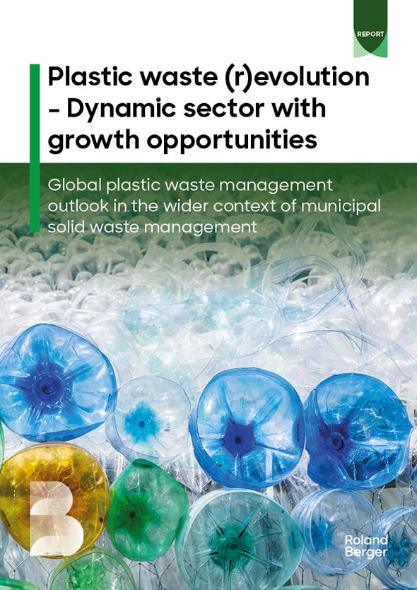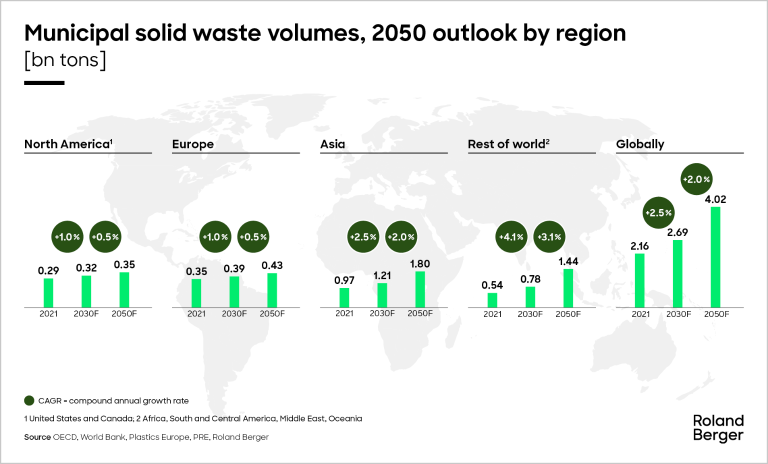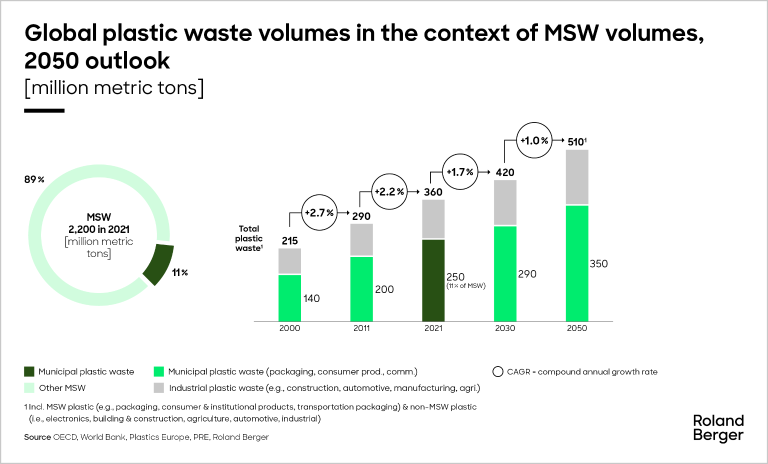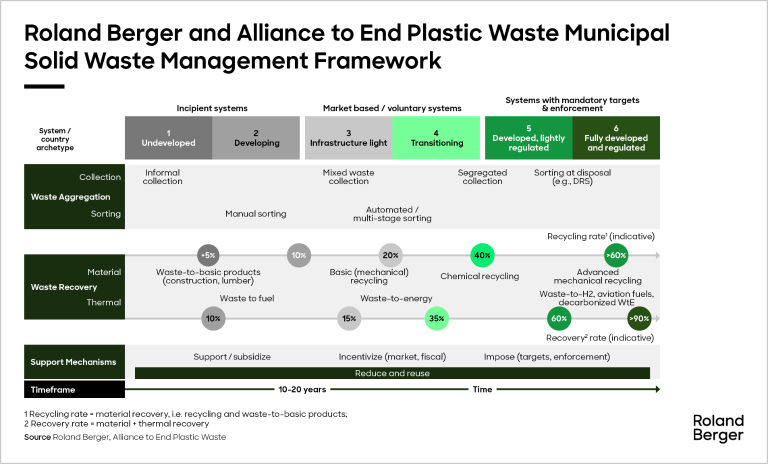The Imperative of Effective Waste Management
The mismanagement of MSW poses significant environmental risks, including the release of potent gases and contamination of soil and water sources. Consequently, there is a growing emphasis on enhancing waste management practices, including collection, sorting, recycling, and residual waste management. Effective waste management not only mitigates environmental harm but also unlocks economic opportunities through resource recovery and job creation.
The Promise of Recycling
Over the past three decades,
recycling
efforts have intensified, with global recycling rates reaching approximately 40% for key recyclable materials (fibers, metals, plastics, glass). Projections suggest that by 2050, the overall recycling rate could increase to around 70% blended for these four key recyclables, driven by regulatory measures, consumer demand for sustainable products, and advancements in recycling technologies. The
circular economy
paradigm, which emphasizes resource efficiency and closed-loop systems, is gaining traction as a holistic approach to waste management.
Plastic Waste: A Looming Challenge
Plastic waste has emerged as a pressing concern, given its long decomposition time and adverse effects on ecosystems. While developed countries have seen a slowdown in plastic waste generation, developing economies continue to witness growth in plastic waste volumes. This trend underscores the urgent need for targeted interventions to address plastic pollution, including policy reforms, public awareness campaigns, and investment in alternative materials and technologies.












